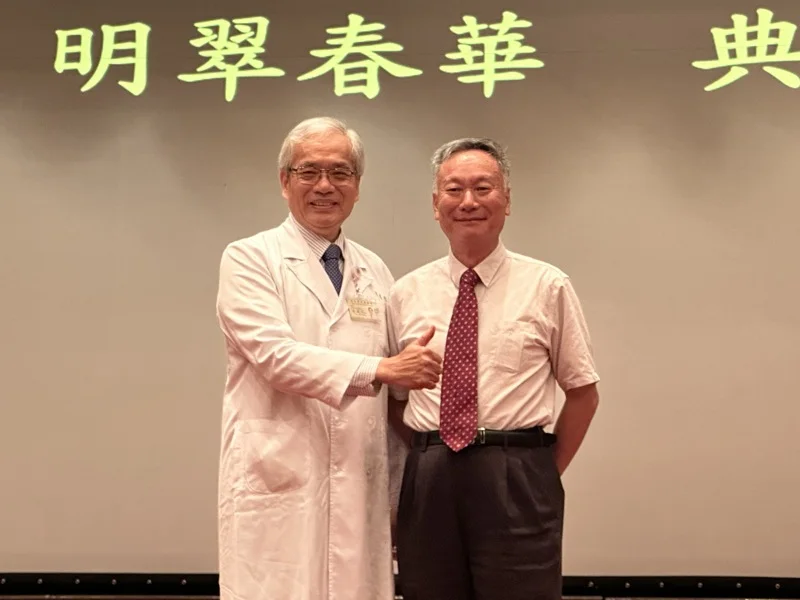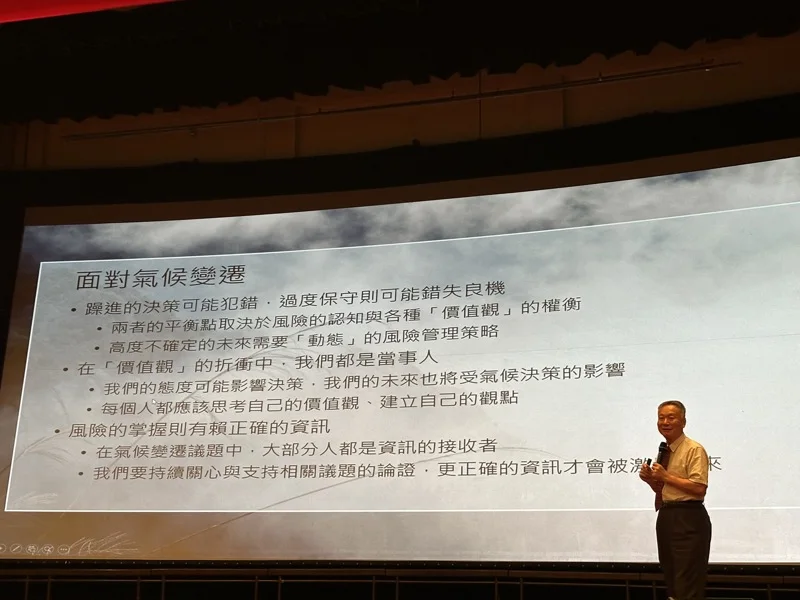NVIDIA’s Beitou-Shilin Headquarters Could Consume as Much Power as All of Taipei; Cheng Ming-Tien Urges Early Planning

NVIDIA’s overseas headquarters will be established in the Beitou-Shilin Technology Park (commonly known as “Beishi Tech”). Taipei Veterans General Hospital (TVGH), which is located nearby, welcomed the move. Hospital superintendent Chen Wei-Ming expressed strong support, noting that the medical and ICT (Information and Communications Technology) sectors are Taiwan’s twin pillars. He hoped for more future collaboration between the two sectors. However, he also raised concerns about potential rises in local housing prices and traffic congestion, urging the government to resolve traffic issues on Shipai Road. He suggested building a light rail system to improve accessibility.
TVGH hosted a lecture today by Cheng Ming-Tien, former director of Taiwan’s Central Weather Bureau (now the Central Weather Administration), on the topic of “Recent Developments in Climate Change.” Chen described Cheng as the “Zhuge Liang” (a master strategist) of modern meteorology, especially relevant as Taiwan experienced record-high average temperatures last year. He emphasized that climate change, global warming, and natural disasters demand everyone’s attention.
Cheng pointed out that the electricity consumption of NVIDIA’s future headquarters could be nearly equivalent to that of the entire city of Taipei. During periods of extreme heat, electricity demand will spike significantly, and he urged the government to start preparing early.
He gave an example from Europe’s 2013 heatwave, which led to the deaths of over 20,000 people in France. At that time, only about 10% of French hospitals had air conditioning. The heatwave also caused the Seine River to dry up, making it impossible to cool nuclear reactors located nearby, forcing the shutdown of several nuclear power plants. Without electricity, air conditioning couldn’t function, leading to mass casualties. By contrast, during another heatwave in 2018, about 90% of hospitals in France were air-conditioned, and there were no large-scale deaths.
Cheng also cited a recent heatwave in the U.S., which caused over 500 deaths in Chicago. While most homes had air conditioning, power outages during extreme heat left many elderly people in senior apartments vulnerable to heat-related deaths. He emphasized that many epidemics are also linked to climate change, and government agencies should take proactive measures.
Wang Shu-Jun, Deputy Superintendent of TVGH, added that due to climate change and global warming, he often hears migraine patients asking whether weather changes are the cause. Many say their headaches didn’t occur when living in Taichung, but started after moving to Taipei.
Cheng explained that Taipei is colder than Taichung in winter, but hotter in summer because it sits in a basin, making heat dissipation difficult. With nearly every household running air conditioning in the summer, the urban heat island effect becomes pronounced. This results in a larger temperature fluctuation between seasons, potentially triggering more intense headache symptoms.
The Central Weather Bureau and National Taiwan University’s School of Public Health once used National Health Insurance data to find that cardiovascular diseases among Taiwanese were linked to cold temperatures. However, recent studies show that high temperatures and air pollution are also major risk factors. The public should remain vigilant.
Cheng concluded that global warming and climate change affect everyone. When facing these challenges, rash decisions can lead to mistakes, but being overly conservative may mean missing opportunities. The key lies in balancing risk awareness and values. In an uncertain future, we need adaptive and dynamic risk management strategies.
He stressed that our attitudes can influence decisions, and our future will be shaped by those decisions. Everyone should reflect on their own values and perspectives. While most people are merely receivers of information on climate change, he encouraged the public to stay informed and support evidence-based discussions so that more accurate information can come to light.

Taipei Veterans General Hospital Superintendent Chen Wei-Ming (left) said that former Central Weather Bureau Director Cheng Ming-Tien (right) is the “Zhuge Liang” of modern meteorology. He emphasized that, especially with Taiwan’s average temperature reaching a historic high last year, the challenges of climate change, global warming, and frequent natural disasters deserve everyone’s attention.

The Master Lecture Series at Taipei Veterans General Hospital today invited former Director of the Central Weather Bureau (now the Central Weather Administration), Cheng Ming-Tien, to deliver a keynote speech on the topic “Recent Developments in Climate Change.”

Former Director of the Central Weather Bureau, Cheng Ming-Tien, stated that in the issue of climate change, most people are information recipients. Only through continued attention and support for discussions on related topics can more accurate information be brought to light.